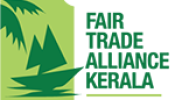Contact Us
Get in Touch with Us
FAQs
Got Questions?
FTAK currently has around 4,500 member farmers.
These farmers cultivate a variety of crops, such as robusta coffee, cashews, ginger, pepper, coconuts, and rice — for both domestic consumption and export.
With Fair Trade certification (achieved in 2006 for FTAK) farmers get:
A minimum price guarantee (which is set above the volatile market price)
A Fair Trade premium that is invested in community and farm projects
Greater stability and predictability so they can better plan for the future
The Fair Trade premiums are used in a variety of impactful ways, approved by the members:
Disaster management fund (especially because landslides and monsoon damage affect hillside farms).
Processing infrastructure (for cashews, spices) to retain value locally
Solar-powered fencing & elephant deterrence systems (to protect farms without harming wildlife)
Community welfare projects — community kitchens, drinking water, bicycles for students, etc.
Zero-interest loans for crop & livestock support, and help for organic conversion
Kerala is globally renowned for cashew production, and a large share of cashew grown in Kerala is exported internationally.
Historically, government procurement of cashews stabilized the market, but when that program was halted, price volatility returned. Through Fair Trade and collective marketing, FTAK’s cashew production has become a major export product that brings better, more stable returns to farmers.
FTAK uses a combination of strategies to buffer risks:
The disaster management fund helps cover losses from landslides, floods, or monsoon damage.
Diversification of crops (not depending on just one commodity) helps spread risk.
The Fair Trade minimum price ensures a safety net when market prices drop precipitously.
Investments in local processing, infrastructure, and community support help strengthen long-term resilience.
Get Started
Fair Trade in Action — Beyond Commerce, Towards Change
At FTAK, we bridge the gap between farmers, consumers, and global markets through ethical, transparent, and eco-friendly practices.

